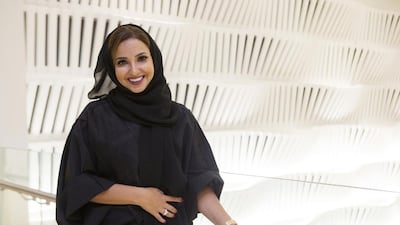When Sheikha Al Zaabi decided to switch her major from marketing to psychology, her parents initially opposed the idea.
Their objection? The “negative stigma” many Emiratis associated with mental-health issues, says the 21-year-old, who graduated with a bachelor of science degree in psychology from Zayed University during the summer.
“They soon turned around after they saw how well I was performing and how happy the subjects made me,” says Al Zaabi, who lives in Abu Dhabi.
“A big motivation for me was to change the mindset around studying psychology, and mental health in general. Plus emotional illness and conflicts run in my family, so I wanted to be a source of support.”
Aisha Amiri, 22, graduated from Zayed University’s psychology programme in the spring and is based in Dubai, where she works as an assistant psychology specialist at a new government rehabilitation centre.
“I wanted to stray from the normal majors, such as business or engineering, and focus on a field of study that put me directly into the path of helping others,” she says. “Helping others in that way is what I felt I could excel at.”
Asma Al Hamiz, an Emirati investment banker with an master’s degree in business administration from London Business School, took a two-year sabbatical from her job to study for a psychology master’s at Sofia University in Palo Alto, California.
“The West is so much more advanced in dealing with people, she says. “They see the professions first then the person behind the profession. This sparked my curiosity. As my interest grew, I decided I wanted to learn it.”
These three women are entering a field that few Emiratis turn to when they need help, let alone make a career out of, which can make finding work difficult.
It is also a path few male Emiratis take. The Movember movement, which began as a campaign to raise awareness of prostate cancer, has in recent years expanded to also draw attention to the effect mental-health issues have on men. Yet the rehab centre where Amiri works has a hard time recruiting male Emirati psychologists. She has met only one.
Al Zaabi, meanwhile, has been looking for a job for months, but is yet even to have an interview.
“My goal is to be a researcher in psychology in the UAE, and then get my master’s to become a certified counsellor,” she says.
“I love the field of mental health. During my internship at a clinic, I got to see how mental health works in the UAE and was surprised to see that a lot were Emiratis, which only motivated me more to work in the field.”
Al Hamiz, who accumulated about 360 hours of one-to-one counselling to earn her degree, says reactions to her career choice have been “mixed” since she returned home.
When it comes to seeking help for problems, including anxiety and depression, the negative stigma among Emiratis is “huge”, and there is a long way to go to change this, she says.
“But based on personal conversations, so many people see the need for it,” she adds. “Everything is being done in secret. Seeing a coach is seen as better than seeing a therapist.”
Al Zaabi, who has researched the way Arabs seek help, says even the term “mental health” can have negative connotations.
“When Arabs seek treatment for mental health, first they go to their religious leader, then they go to a psychiatrist, but a majority don’t go for psychotherapy – they only want the medicine and not the treatment,” she says. “I think they feel uncomfortable talking to others about their feelings. Plus, it’s just easier for them to take medication.”
During an internship at the American Center for Psychiatry and Neurology, she saw how patients would show up to get their prescriptions, but after the first session or two, skip the recommended psychotherapy.
“I think they view it as insignificant,” says Amiri. “That there is no use of it even existing as we traditionally have resorted to religious or spiritual methods of treatments, so we don’t think that medication or therapeutic sessions will do them any good.”
Al Hamiz, who lives in Abu Dhabi and still works in the investments field, while also holding creative-expression workshops for women, believes more attention must be given to the mental health to “depersonalise” problems.
“People don’t want to talk about their emotions if they lost their job, failed an exam or feel depressed,” she says. “When you do hold big conferences, it brings people together, it starts normalise the issue and gets people talking about it – to let people know they’ll be alright.”
Amiri believes that campaigns, public lectures, social media and advertisements could be used to change perceptions.
“I believe the bigger the better for an immediate change to happen, which is why I feel we need to be so public about taboo topics such as mental health,” she says. “People will be more comfortable discussing an issue that is taboo when more people are involved.”
Al Zaabi advocates starting the education process about mental health in primary schools, bypassing the more rigid beliefs of adults and instead targeting the younger generation to challenge perceptions.
“Students don’t understand the concept of mental health,” she says. “They go to extremes, which creates this negative narrative around the issues. If we start at a young age, the idea would stick in their mind and grow with them.”
Khalid Al Ameri is the Emirati representative to the Rosalynn Carter Fellowships for Mental Health Journalism programme in the United States
artslife@thenational.ae

